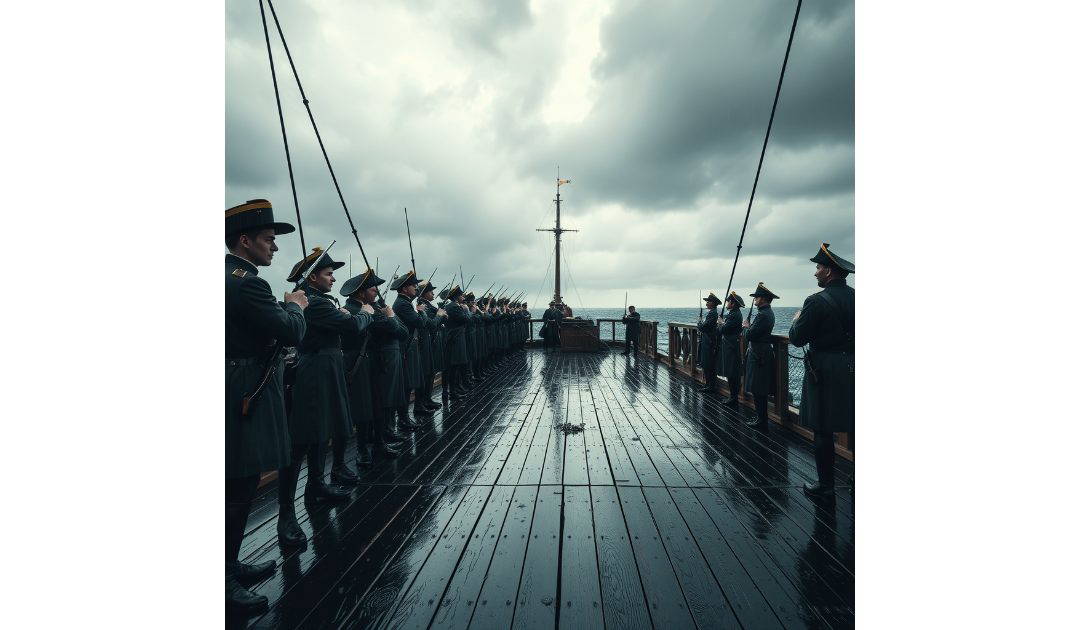I have posted about Admiral Nelson, but today is the anniversary of the death of another admiral. Admiral Sir John Byng’s name is etched in history not for naval victories but for one of the most infamous military executions in British history. His death by firing squad in 1757 remains a stark reminder of the harsh realities of 18th-century naval discipline and political scapegoating.
Born in 1704, John Byng was the son of Admiral George Byng, Viscount Torrington, a highly respected naval officer. With such a pedigree, it was almost inevitable that young Byng would follow in his father’s footsteps. He joined the Royal Navy at the age of 13, steadily rising through the ranks. Byng’s career was solid but not spectacular; he was competent, well-trained, and respected within the navy.
Byng’s most fateful assignment came in 1756, during the early stages of the Seven Years’ War. Britain was at war with France, and the strategically crucial island of Minorca in the Mediterranean was under threat from a French invasion. The government, recognizing the island’s importance, dispatched Byng to relieve the British garrison there.
Byng’s fleet arrived near Minorca in May 1756, only to encounter a strong French squadron. The ensuing battle was inconclusive; neither side gained a decisive victory, but Byng, concerned about the condition of his ships and the difficulty of landing troops, chose to withdraw rather than risk further engagement. His decision was partly influenced by the outdated and rigid Articles of War, which placed excessive emphasis on avoiding unnecessary losses.
Back in Britain, the public and political leaders were outraged at the loss of Minorca, which soon fell to the French. Byng was recalled, arrested, and court-martialed. The trial was politically charged, with the government eager to find a scapegoat for the disaster. Despite Byng’s arguments that he had followed standard naval tactics and that his withdrawal was justified under the circumstances, the court found him guilty of failing to “do his utmost” in battle—an offense punishable by death under the Articles of War.
Despite appeals for clemency, King George II refused to intervene, and Byng was sentenced to death. On the 14th of March, 1757, he was executed by firing squad on the deck of HMS Monarch at Portsmouth. His final words, reportedly, were: “I am come to die for having done my duty as a faithful officer.”
The execution shocked the nation and the navy. Many saw it as an unjust political move designed to appease public anger rather than a fair administration of military justice. Even Voltaire famously remarked in Candide that in Britain, “it is good to kill an admiral from time to time, to encourage the others” (pour encourager les autres).
In the centuries since Byng’s death, historians and naval scholars have largely agreed that he was unfairly treated. While his actions at Minorca were arguably cautious, they were not reckless or cowardly. His execution was more about political expediency than justice, a means for the government to deflect blame for Britain’s strategic failures.
Byng’s case led to significant changes in military law, as the rigidity of the Articles of War came under scrutiny. No British admiral was ever executed in this manner again. In the 21st century, there have even been efforts to secure a formal posthumous pardon for Byng, though no official action has been taken.
Admiral Sir John Byng’s story serves as a powerful reminder of the dangers of military and political scapegoating. His fate was sealed not by cowardice or incompetence, but by the ruthless need of those in power to find someone to blame.

